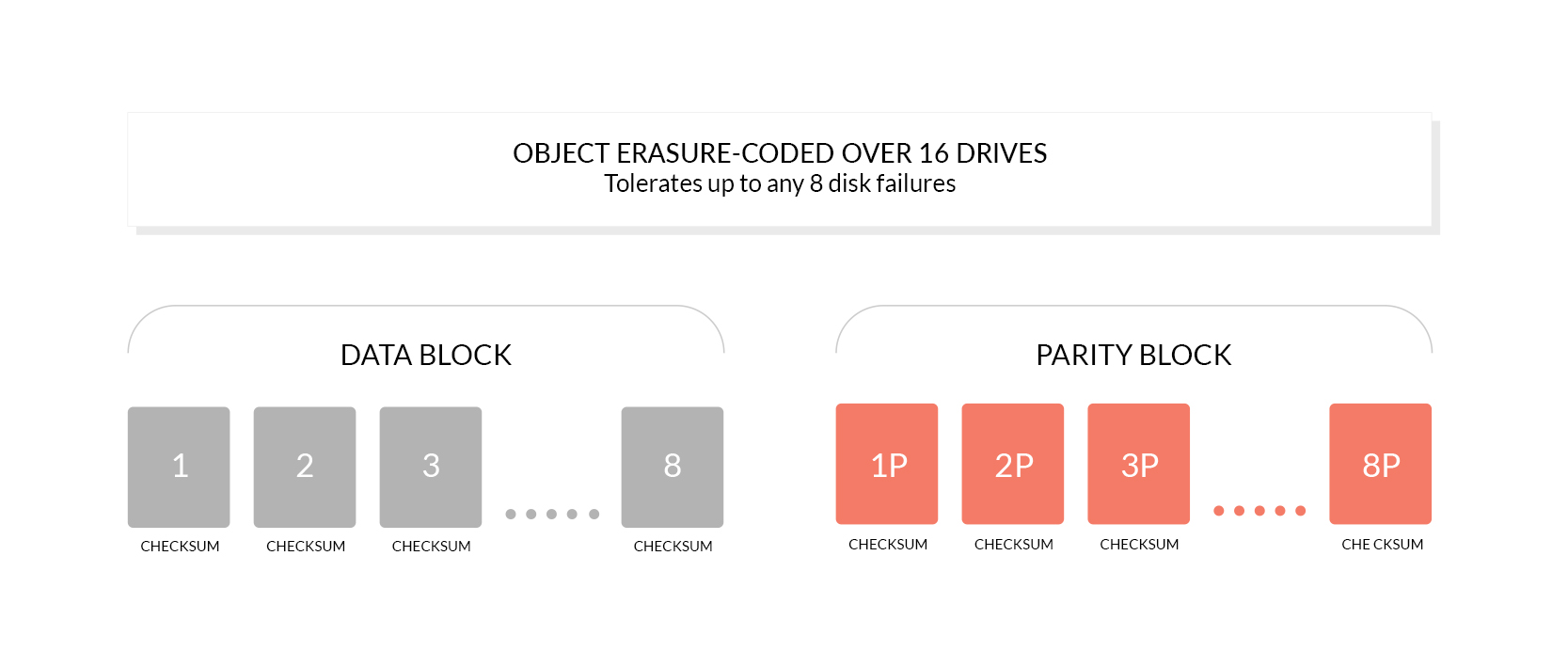- Sort Score
- Num 10 results
- Language All
Results 81 - 90 of 716 for takes (0.04 seconds)
-
docs/security/README.md
server only assumes that the KMS provides two services: - `GenerateKey`: Takes a key ID and generates a new data key from a master key referenced by the key ID. It returns the new data key in two different forms: The plain data key and the data key encrypted using the master key.
Created: Sun Dec 28 19:28:13 GMT 2025 - Last Modified: Wed Feb 26 09:25:50 GMT 2025 - 13.8K bytes - Click Count (0) -
android/guava-tests/test/com/google/common/util/concurrent/RateLimiterTest.java
// we allow one second worth of work to go in a burst (i.e. take less than a second) assertThat(burst).isAtMost(1000); long afterBurst = measureTotalTimeMillis(limiter, oneSecWorthOfWork, new Random()); // but work beyond that must take at least one second assertThat(afterBurst).isAtLeast(1000); } } /**
Created: Fri Dec 26 12:43:10 GMT 2025 - Last Modified: Tue Oct 28 18:19:59 GMT 2025 - 21.9K bytes - Click Count (0) -
guava-tests/test/com/google/common/util/concurrent/RateLimiterTest.java
// we allow one second worth of work to go in a burst (i.e. take less than a second) assertThat(burst).isAtMost(1000); long afterBurst = measureTotalTimeMillis(limiter, oneSecWorthOfWork, new Random()); // but work beyond that must take at least one second assertThat(afterBurst).isAtLeast(1000); } } /**
Created: Fri Dec 26 12:43:10 GMT 2025 - Last Modified: Tue Oct 28 18:19:59 GMT 2025 - 21.9K bytes - Click Count (0) -
docs/bucket/lifecycle/DESIGN.md
Lifecycle transition rules can be applied to buckets (both versioned and un-versioned) by specifying the tier name defined above as the transition storage class for the lifecycle rule. ## Implementation
Created: Sun Dec 28 19:28:13 GMT 2025 - Last Modified: Tue Aug 12 18:20:36 GMT 2025 - 4.2K bytes - Click Count (0) -
docs/sts/wso2.md
### 5. Setup MinIO with OpenID configuration URL MinIO server expects environment variable for OpenID configuration url as `MINIO_IDENTITY_OPENID_CONFIG_URL`, this environment variable takes a single entry. ``` export MINIO_IDENTITY_OPENID_CONFIG_URL=https://localhost:9443/oauth2/oidcdiscovery/.well-known/openid-configuration export MINIO_IDENTITY_OPENID_CLIENT_ID="843351d4-1080-11ea-aa20-271ecba3924a"
Created: Sun Dec 28 19:28:13 GMT 2025 - Last Modified: Tue Aug 12 18:20:36 GMT 2025 - 8.7K bytes - Click Count (0) -
android/guava/src/com/google/common/collect/MoreCollectors.java
Object result = state.getElement(); return (result == NULL_PLACEHOLDER) ? null : result; }, Collector.Characteristics.UNORDERED); /** * A collector that takes a stream containing exactly one element and returns that element. The * returned collector throws an {@code IllegalArgumentException} if the stream consists of two or
Created: Fri Dec 26 12:43:10 GMT 2025 - Last Modified: Mon Apr 14 16:07:06 GMT 2025 - 5.6K bytes - Click Count (0) -
architecture/standards/0004-use-a-platform-architecture.md
### Platforms The platforms and their architecture modules are: #### Core automation platform This is a general-purpose automation platform which takes care of the efficient definition and execution of work, such as tasks. This platform is agnostic to what exactly the purpose of the work is.
Created: Wed Dec 31 11:36:14 GMT 2025 - Last Modified: Sun Feb 25 22:19:29 GMT 2024 - 4.5K bytes - Click Count (0) -
docs/en/docs/fastapi-cli.md
<span style="background-color:#007166"><font color="#D3D7CF"> INFO </font></span> Application startup complete. ``` </div> The command line program called `fastapi` is **FastAPI CLI**. FastAPI CLI takes the path to your Python program (e.g. `main.py`) and automatically detects the `FastAPI` instance (commonly named `app`), determines the correct import process, and then serves it. For production you would use `fastapi run` instead. 🚀
Created: Sun Dec 28 07:19:09 GMT 2025 - Last Modified: Sat Oct 11 17:48:49 GMT 2025 - 4.8K bytes - Click Count (0) -
build-logic/binary-compatibility/src/main/groovy/gradlebuild.binary-compatibility.gradle
def baseVersion = gradleModule.identity.version.map { it.baseVersion.version } dependencies { baseline("gradle:gradle:${compatibilityBaselineVersion}@zip") // This transform takes the Gradle zip distribution, // and unzips the Gradle jar files that it contains in a directory registerTransform(ExplodeZipAndFindJars) { from.attribute(ARTIFACT_TYPE, 'zip')Created: Wed Dec 31 11:36:14 GMT 2025 - Last Modified: Tue Dec 30 10:14:25 GMT 2025 - 8.9K bytes - Click Count (0) -
docs/erasure/README.md
 ## What is Bit Rot protection?
Created: Sun Dec 28 19:28:13 GMT 2025 - Last Modified: Tue Aug 12 18:20:36 GMT 2025 - 4.2K bytes - Click Count (0)